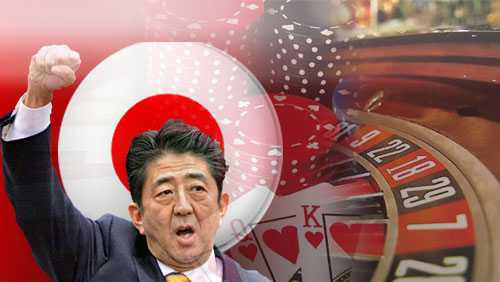Japan Prime Minister Shinzo Abe and his ruling coalition successfully retained their positions in the government after Abe won a new two-thirds majority in the country’s recent parliamentary elections.
Japanese media has reported that Abe’s Liberal Democratic Party (LDP) also retained its House of Representatives majority. Together with minority party partner Komeito, the group was able to secure 325 seats out of 475.
 The election, which a majority of Japanese believed was unnecessary, gives Abe four more years in office to push his so-called “Abenomics” economic reforms.
The election, which a majority of Japanese believed was unnecessary, gives Abe four more years in office to push his so-called “Abenomics” economic reforms.
Abe previously made it clear that a big part of these reforms would be to bring casinos in the country to help stimulate tourism and economic growth. With him retaining office until 2018, the Integrated Resorts bill that he has championed still has some life to it.
The bill was supposed to be an easy sell to parliament but after Abe’s administration suffered one political scandal after another, fears of strong opposition towards the bill prompted the administration to table discussion until next year.
The fate of the bill would’ve been thrown further in limbo had Abe lost the snap elections he himself called. But with an ill-prepared opposition that offered little fresh alternatives for the voters, the public decided to bring Abe back to power, albeit through an alarmingly low voter turnout.
The onus is now on Abe’s shoulders to push his IR bill next year. His initial plan of legalizing casinos and seeing them open before the 2020 Tokyo Olympics is unlikely to happen now but Abe at least has enough time to push his plan without the pressure of deadlines affecting the proceedings.
Abe’s party has made it clear that it plans to resume deliberations of the bill during 2015’s two Diet sessions, the first of which begins in January. That should give him and his cohorts enough time to recalibrate their strategy, beginning with convincing junior partner Komeito to jump on board their casino plans.